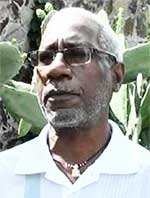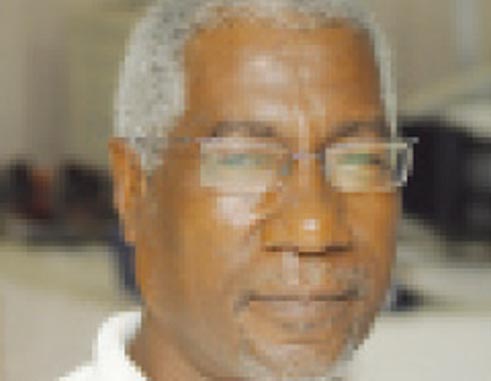
The latest incidents involving police shootings here have once again stirred-up understandable public concern and debate over issues of police use of arms and the degrees of force to be applied by armed officers, and whether and when police should use lethal or non-lethal means of force to force lawbreakers into submission.
Interestingly, the discussions start from a standpoint of people seemingly accepting that the police should be armed with guns and expected to use force, but the question is: just how much?
Caribbean police forces have metamorphosed over the past four decades, at least, from colonial police services armed with batons and public respect, senior officers brandishing ceremonial varnished and crowned canes, officers expected and trained to police by way of investigations and prosecutions based more on detective work and understanding of the crime situation in the country.
Gone are the days when the police knew exactly who to go after according to what crime was committed, and in the face of the increasing use of guns and other deadly weapons, it was only imperative that police officers also be proportionally prepared to take on the new fights.
But while that may be so, it is equally important for police officers given use of arms to be sufficiently trained not only in how to use them, but more so in how to do so responsibly.
And this leads to the Catch 22 question: Can rogue cops or simply careless armed officers be tamed and or are the wild horses already too far at large after having long bolted the barriers?
With hardly any information about whether or how the police is actually handling matters involving police shootings or shootings involving police officers, people naturally harbor concerns about what will be the end game in each case, including the still-so-far-mysterious shooting of a 17-year-old Castries student in May, buried in June, but his family with still no word from the police a full month after he died on how he got killed.
With no one charged, no account given about the weapon the police claim to have recovered in the vehicle and no one charged in relation to the shooting, it’s also natural that other families with similar experiences will share in the collective grief of the deceased student’s family.
As with everything else here, political social media assassins have targeted the sympathetic mother of another young Saint Lucian gunned down in similar mysterious circumstances that attended the boy’s vigil and expressed her support for the family’s quest for justice, ridiculously arguing that the two incidents happened in two different countries so should not be compared.
Some even laughingly but seriously queried why the family chose the boy’s favourite color (red) for his vigil’s official attire!
But this issue of police shootings will continue to haunt Saint Lucia and other Caribbean countries for as long as governments do not take history into consideration in addressing how we got to where we are.
Saint Lucia and other Eastern Caribbean countries are reaping the whirlwinds of police firepower planted nearly half-a-decade ago, when the newly-independent now-OECS member states, in particular, allowed their police forces to be militarized by the United States.
‘Royal’ police forces established and trained by the British to concentrate on non-armed policing with detective work and intelligence gathering capabilities alongside capable prosecutorial services were suddenly thrust into establishing and maintaining new armed sections.
In Saint Lucia’s case, the Special Services unit (SSU) was created and trained by US services in use of new and more sophisticated weapons, single-shot 303 caliber self-loading rifles and regular .38 and .45 caliber small-arms replaced by high caliber US-made machine guns of various types, with multiple rapid-fire features.
Initially, in the name of fighting marijuana use and cultivation and in pursuit of the Dangerous Drugs Act passed in the mid-1970s to strengthen the police and prosecutors’ hands, the SSU was mainly deployed against the original Rastafarians who had retreated to the island’s interior to live closer to their spiritual needs and means.
The US Army-clad and supplied unit eventually became the most feared section of the Royal Saint Lucia Police Force (RSLPF), it’s members gaining a collective notoriety for being quick on the draw and wrongly but largely considered by members of the public as almost untouchable by the tentacles of justice.
Back then, the SSU was not afraid to show and use its force, its members often deployed against protesting workers on the march, to teargas opposition-led demonstrations, leading officers at one time even accosting a sitting prime minister on the steps of a then popular local bank on a day of popular protest.
The SSU became a unit of officers considered by the public as more of a collective of the ‘bad boys’ in the force than officers who set out to investigate crime and settle matters without any use of force, some known or seen to be more itchy-fingered than others, among them those attracting nicknames from movies depicting rogue cops and fictitious or legendary international crime figures known for their mercilessness.
There’s also this long stain on the record of prosecution of members of the SSU and other armed officers involved in multiple cases of fatal shootings, whereby, in too many instances for public comfort, magistrates heading coroners’ inquests returned verdicts of ‘death by misadventure’ that effectively cleared each and every officer who pulled the trigger — and allowed them back on the streets, in or out of uniform, to continue doing their usual do.
The use of arms by the force as a way of using force in pursuit of criminals or suspects is a long story in all OECS and CARICOM states that forcefully begs visiting and/or revisiting across the region — and the recent talk about establishment of a regional police force is a good place to start.
To be continued…













